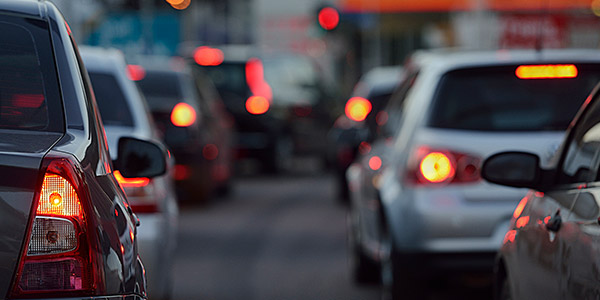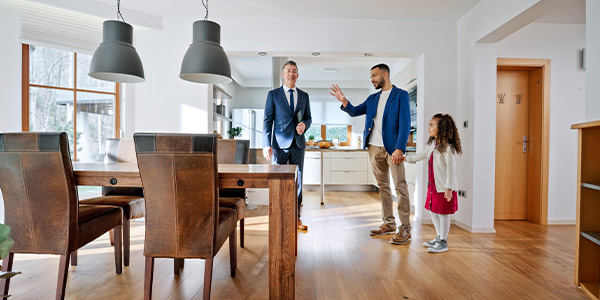Homebuyers
Don't Buy Before Reviewing These Top 10 Location No-No's
April 23, 2018
"Location, location, location" has been a phrase that's been in use since at least 1926, according to The New York Times, but its relevance to homebuyers may be even more important in 2018.
That's because with shrinking inventory and steadily rising housing prices, many homebuyers are finding it harder to move into their "dream" home that fits their budget.
Consequently, they're settling for less desirable locations that they once considered non-negotiable.
If you happen to be one of these house hunters, you should at least be aware that some locations are less agreeable than others. By putting these dubious sites on your radar, you'll face your house-hunting as a more informed and educated buyer.
Ultimately, what you can live with comes down to personal preference, but after reviewing the following list you might just decide that some compromises aren't worth it, at any price.
1. High-Traffic Zones
Translate high-traffic zones as meaning "high-pollution zones." When selecting a home, aim for a location as far away from the freeway as possible. Avoid sites within 500 feet — where California air quality regulators warn against building — or even 1,000 feet. That's where traffic pollution is generally highest, along with rates of asthma, cancer, heart attacks, strokes, reduced lung function, pre-term births, and a growing list of other health problems.
Steer clear of major traffic signals as well. Idling vehicles spit out a lot of exhaust and braking vehicles spew out copper dust and other toxins.
2. Bad Schools
Poor-performing schools are like that proverbial canary in the coal mine, often indicating that the neighborhood is sub-standard. Meanwhile, shuttered schools could signify a school district that is strapped for cash. Then again, closures may simply mean the town is full of retirees and empty nesters, but any consolidation should raise an eyebrow or two.
3. Death-Related Businesses
Funeral homes spook a lot of people, reminding many of their mortality. Besides the negative spiritual energy that some homebuyers cite, there is also the very real traffic and commotion that funeral homes can generate.
Meanwhile, cemeteries also creep out a lot of people. Their fears may be irrational or based on watching too many horror films. Then again, if you savor silence, you may have found the perfect home.
4. Power Generators
People need power, they simply prefer that its generation not occur near them. Think of toxic spills, refinery explosions, and coal-mining disasters. After Erin Brockovich helped trace the contamination of Hinkley, California's water supply, victims filed a $333 million class action suit against Pacific Gas and Electric. Property values plummeted, and the town has never recovered. There are more than 8,000 power plants across the U.S., according to the Environmental Information Agency, so beware.
5. Hospitals
If you face a life-threatening emergency, you should take great comfort in your home's proximity to a hospital. But for all those other times, wailing sirens and constant traffic could prove annoying, not to mention deflating to home values.
6. First Responders
Like hospitals, our police and fire help preserve our health and safety. But the constant commotion generated by these first responders might have you running for the Lunesta.
7. Unstable Hillsides
Torrential rains can super-saturate land and move the earth, causing massive mudslides and loss of life. In the most recent example, at least 20 people lost their lives in the Montecito, Calif., mudslides in January 2018. Many traffic arteries can also be closed for days, hurting businesses and livelihoods.
8. Gas Stations
Gas stations are great when you need to fill up, but watching from your yard as someone pumps gas or changes oil is a neighborhood downer. The same goes for auto parts supply stores. Steer clear.
9. Landfills
Landfills have an image problem. No matter how much you dress them up, they are still former dumps, and sometimes these dumps become Superfund clean-up sites. Bad images are also bad for resale. It's probably best to move on.
10. Strip Clubs
Even when referred to as gentlemen's clubs, it doesn't change the fact that many of these establishments are associated with high-crime neighborhoods.
None of the above necessarily have to be deal-killers when looking for a home. Simply refer to the list as part of your due diligence. As much as you are in love with that beautifully remodeled four-bedroom, three-bath, move-in ready home, never lose sight of real estate's No. 1 rule: location, location, location.





 Smart Moves Start Here.
Smart Moves Start Here.